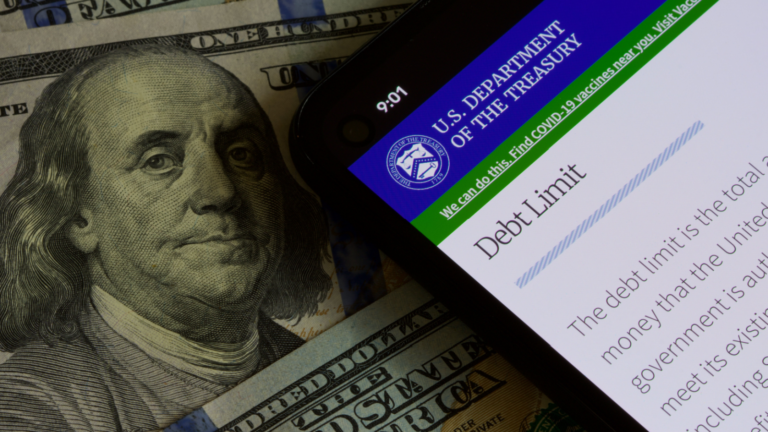Lawmakers are starting to pursue some novel workarounds to the current debt ceiling crisis. This includes attempts to use language found in the 14th Amendment to circumvent Congressional approval.
The 14th Amendment may represent one of the most promising potential methodologies of granting the federal government more money without waiting for Congressional legislation. According to legal experts, the Amendment that permitted citizenship to former slaves contains a section that implies Presidential authority to order the country’s debts to be paid.
“The validity of the public debt of the United States, authorized by law, including debts incurred for payment of pensions and bounties for services in suppressing insurrection or rebellion, shall not be questioned,” reads Section 4 of the 14th Amendment, referring to the debt created by the Union during the Civil War.
For months now lawmakers have been stuck in negotiations, both sides of the aisle unwilling to make the compromises necessary to get the long-awaited debt ceiling legislation signed into law. The left wants to raise the budget limit with no conditions, while the right has remained steadfast in its commitment to various conservative agenda points, like implementing a work requirement for certain social security programs, and general spending cuts, in exchange for the party’s votes on the legislation.
Some Lawmakers Push for 14th Amendment Tactic as Debt Ceiling Crisis Continues
While most agree that the 14th Amendment doesn’t permit the President to pay off governmental debts unilaterally, some lawmakers have come out in support of the measure.
This includes Senators Bernie Sanders and Elizabeth Warren, who signed a recent letter to President Joe Biden urging him to consider the solution. While Biden has generally dismissed tertiary methods of raising the debt ceiling, he has at least acknowledged his administration’s exploration of the 14th Amendment proposal.
“I’ll be very blunt with you, when we get by this, I’m thinking about taking a look at, months down the road, as to see whether what the court would say about whether or not it does work,” Biden told reporters earlier this month.
In that regard, there are actually a number of potential Congress-free methods of raising the ceiling. This includes the minting of a $1 trillion platinum coin or giving the Treasury instructions to prioritize the payment of certain payables, like social security and welfare programs, while pushing back payments towards other government spending categories.
Consequences of Invoking the 14th Amendment
Most consider these alternative debt ceiling solutions, including the 14th Amendment workaround, equivalent to putting a bandaid over a flesh wound — they simply don’t appropriately address the issue at hand or, in some instances, create constitutional conflicts.
Legal experts agree that while invoking the 14th Amendment may avoid a near-term default, it would also create an immediate constitutional crisis, essentially putting the fate of the country’s debt maintenance abilities in the hands of the Supreme Court.
“There would clearly be litigation around that. It’s not a short-run solution,” Treasury Secretary Janet Yellen said last week. “It’s legally questionable whether or not that’s a viable strategy.”
Yellen has repeatedly stated the Treasury may run out of money as soon as June 1, the long-feared “X-date,” when the country is forced to default on its debt. While it’s not entirely uncommon for the U.S. to sort out its debt ceiling woes at the 11th hour, the polarized state of Congress has many concerned over whether the country may default, devoid of mutually agreeable legislation.
In that regard, invoking the 14th Amendment remains an unlikely but pursuable tactic.
“It was not meant to be a broad grant of power,” said former Treasury Secretary Jack Lew last month. “Whether you could come up with a theory that you could convince a court was legitimate, I think it’s just a risky thing to do.”
On the date of publication, Shrey Dua did not hold (either directly or indirectly) any positions in the securities mentioned in this article. The opinions expressed in this article are those of the writer, subject to the InvestorPlace.com Publishing Guidelines.

